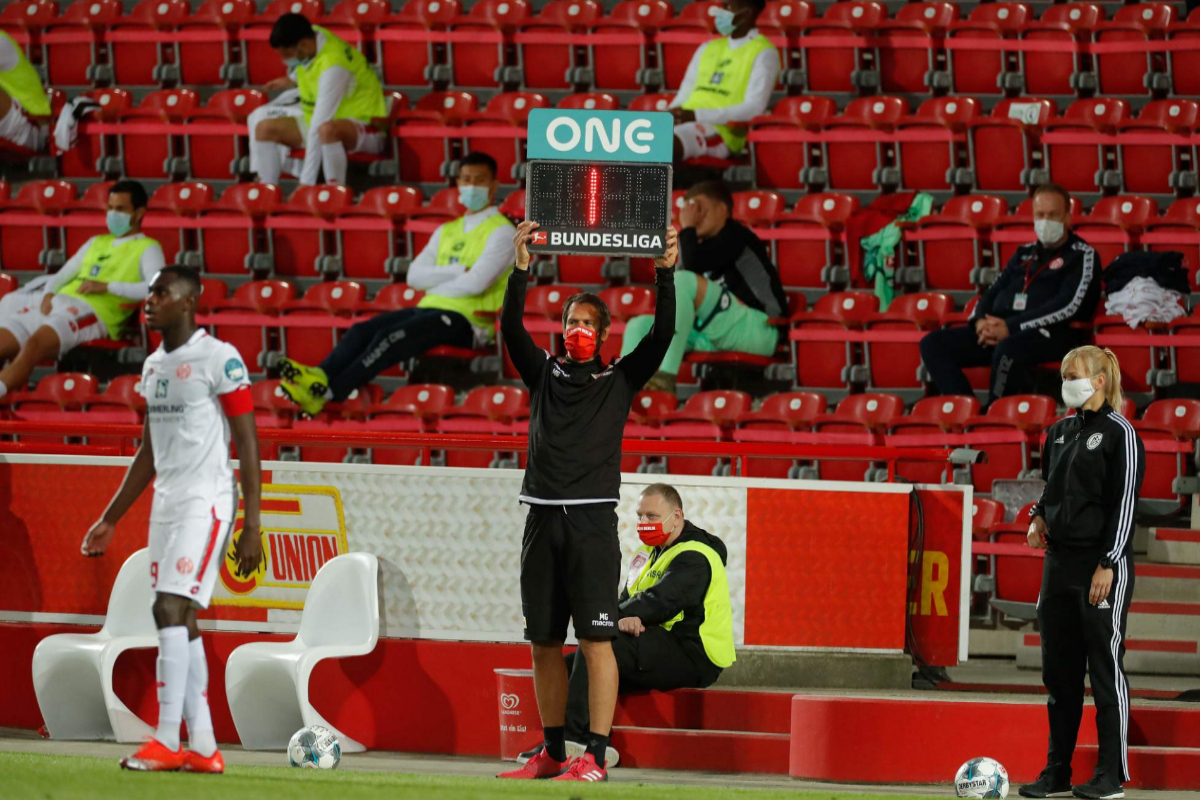We will never know what would have happened if the famous Yellow Wall of Signal Iduna Park, that pharaonic 100-meter-wide and 40-meter-high grandstand, which ecstases 25,000 thunderous fans of Borussia Dortmund, had received Bayern Munich as usual. «You look to your left and it seems that there are 150,000 people in the stands. It's crazy, ' Jurgen Klopp used to say over the seven seasons at the helm in Dortmund. The case is that the Bavarian team broke down the door of the safest stadium in the Bundesliga, untouchable in Germany and Europe, and moved out of his way, towards the eighth crown in a row, to the most dangerous obstacle that had presented itself in his house until the moment.
This assault on the Borussia bunker symbolizes, in part, the new reality that, it seems, is going to land on the football that the Covid-19 crisis has left. In the three days played in Germany, the only top-tier league that is underway in Europe, only five teams have put into effect that field factor that, traditionally, usually has its weight. The rest (27 duels), 12 away wins and 10 draws. In the three days before the break, where there is still one game pending: the same number of victories at home as it was, nine, and eight tables.
“It is possible that this field factor may be lost at first. The local team may initially feel more uncomfortable seeing their stadium empty and without the spirit they used to perceive from the stands. And the visitor will find a more neutral sporting situation, as long as there are no fears of contagion, of course, ”says Alejo García-Naveira (@Alejo_GNaveira), a sports psychologist who has worked at Atlético de Madrid and Almería. "With the passing of the games, little by little, there will be a psychological re-adaptation of the players, especially the locals, although we will see if in six duels at home or if it was enough to achieve it," he adds.
Because the footballer's brain has to adapt to the race to an unknown situation. In the German case, the process has been even faster. “Mental health care and psychological training was always necessary, but even more so in the days of Covid-19. Before, to know how to play in adverse environments and situations of maximum demand. Now, to compete in front of empty stages, which can be a stressful or neutral situation for some and liberation for others ", abounds.
«The shock of seeing the empty stadium is a personal perception and you have to attend to the individual and group. It is possible that the matches are equated to a training regarding the stage, only that these are now at the highest level », continues Alejo, who considers the referees the most benefited by this situation. “Now more than ever the classic phrase of: 'you compete as you train' is gaining weight. Normally, there is usually a certain distance between the two situations, but the public is no longer decisive. Therefore, training adapted to this situation is of vital importance, "he points out.
"It gives the feeling of being in a training"
From the other side of the Atlantic, the Argentine Mariano Pernía , who came to play the 2006 World Cup with Spain due to Del Horno's injury, remembers that atypical Champions League night in which Atlético had to face Dutch PSV (2- 1 the rojiblancos won) with a Vicente Calderón without public, by sanction of the UEFA. «Playing like this is very rare and the most difficult thing is to focus 100%. Since you get to the stadium, people are cheering and screaming, you are getting into it little by little. Behind closed doors it is as if it were a training. There is no one, you listen to everything and, although it does not seem an official match, you are playing the same thing ».
The one who was left back for Recreativo , Getafe and Atlético lived that experience in 2008, which allows him to understand what is happening in Germany and, who knows, it can happen in LaLiga. «When you are in the locker room, the stands are heard. But behind closed doors there is only silence. The famous atmosphere is gone and the concentration is longed for. Even the rhythm seems different. The visitor and the local are paired, "he says.
Although, according to Pernía, the most affected may be the teams with the most potential. "The team with the most name is going to have a harder time. I was in Getafe and it motivated you to measure yourself against other more important teams, "he recalls. «Even when you play as a visitor, people motivate you. Everyone insults you. The thing is, playing at home is no longer what it used to be.
In accordance with the criteria of The Trust Project
Know more- sports
- soccer
- Bundesliga
BundesligaA complete squad in quarantine that calls into question the return of football in Germany
BundesligaThe strange statistical phenomena that shake the restart of the Bundesliga
Bundesliga 2019 - 2020The 13,000 'ghosts' of Mönchengladbach: cardboard lives to cheer on the team

